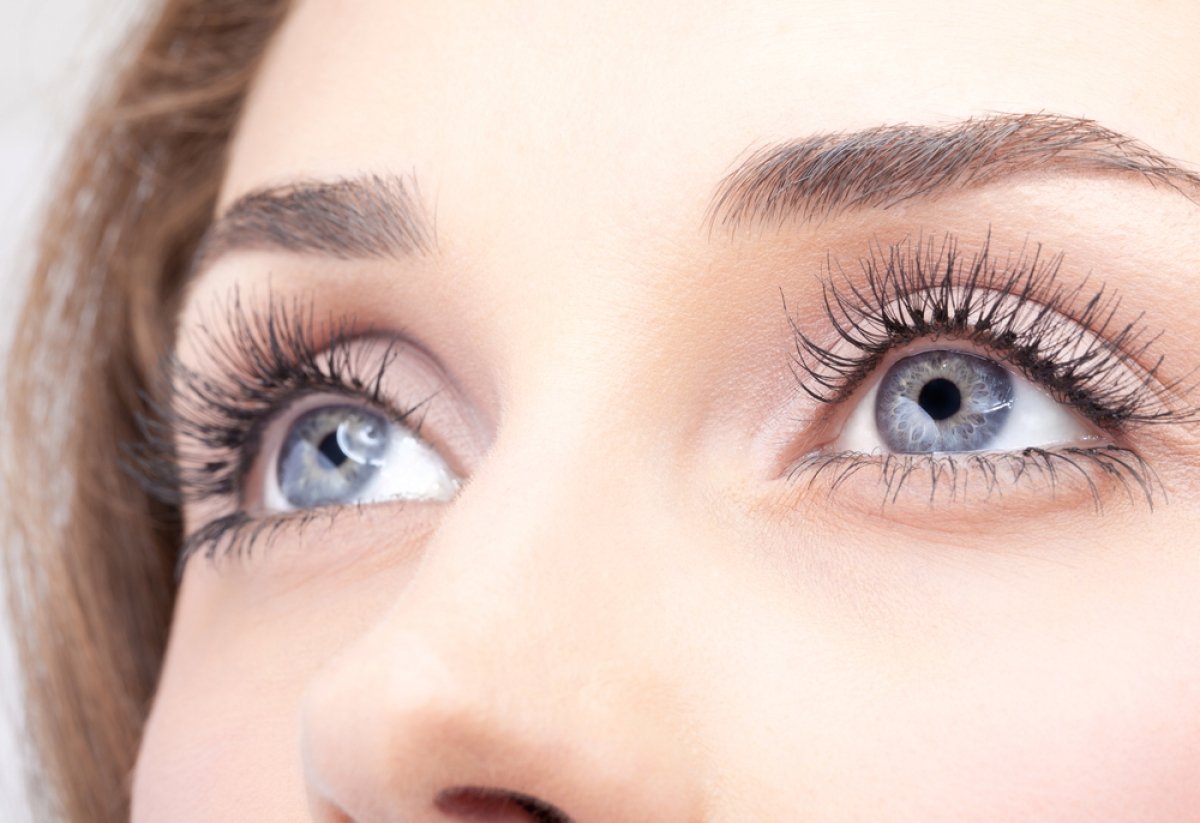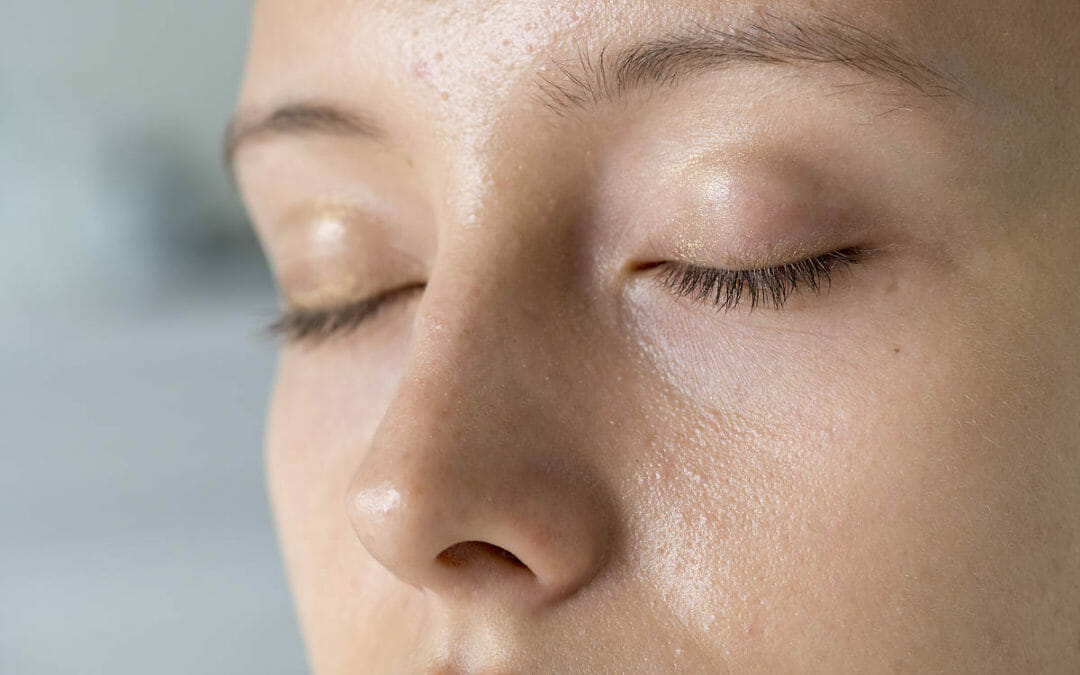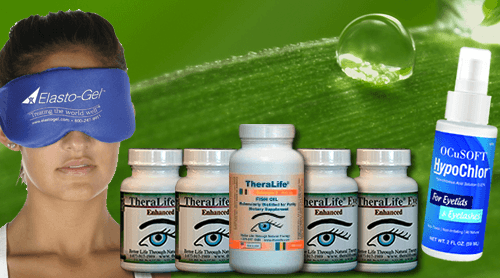Reduce Inflammation- Treat Your Dry Eyes To Manage Uveitis –
Natural Remedies for Uveitis
Effectively reduce inflammation without the use of drugs and steroids
Are There Natural Remedies for Uveitis?
Uveitis is an inflammatory eye condition that affects the middle layer of the eye, known as the uvea. Symptoms include redness in one or both eyes, blurred vision, light sensitivity, and pain.
Uveitis treatment options depend on the severity and type of uveitis; natural remedies may also provide relief. This article will explore various tips for relieving symptoms related to uveitis, such as dietary changes, lifestyle modifications, vitamins and supplements, exercise, and relaxation techniques.
In addition to conventional uveitis treatments prescribed by a doctor, exploring all available treatment options can be beneficial when managing this condition.
Natural remedies are gaining popularity among sufferers due to their non-invasive nature and potential health benefits. Understanding how these methods work and incorporating them into daily life could help alleviate inflammation caused by uveitis while adhering to standard medical care protocols.
Overview Of Uveitis
Uveitis is an inflammatory disorder of the eye that affects the uvea, including the iris and other eye parts. Various factors, including immune system disorders, infections, or injury to the eye, can cause uveitis.
Uveitis can cause pain, redness, blurred vision, light sensitivity, and decreased visual acuity. The inflammation associated with uveitis occurs when specific immune system cells release cytokines into the bloodstream. These cytokines then travel to the area around the eye, where they increase blood flow and cause swelling and irritation in surrounding tissues.
The increased pressure on these areas can lead to further discomfort and impaired vision in those affected by uveitis. Various dietary changes can be potential treatments for uveitis; however, their effectiveness remains inconclusive due to limited current research evidence.
While some studies suggest that diets low in processed foods rich in antioxidants may help reduce inflammation levels related to uveitis conditions, more research can conclude about the diet’s role in treating this condition effectively. Moving forward, exploring ways to incorporate healthier eating habits into daily life could provide promising results for people living with chronic cases of uveitis.
Uveitis and Dry Eyes
Uveitis can share symptoms with dry eye diseases, such as photophobia, blurred vision, and decreased vision; nevertheless, they differ in the pattern of ocular pain, described as neuropathic pain for dry eye disease and dull pain around or in the eye, which may worsen when focusing on uveitis.
Inflammation and autoimmunity are pathological processes in many diseases affecting multiple tissues; the eye is no exception. Dry eye disease (DED) has been recently considered an ocular surface autoimmune disorder [1], where cornea, conjunctiva, eyelids, lacrimal glands, goblet cells, and meibomian glands can be involved.
According to The Dry Eye Workshop II (DEWS II), published by the Tear Film and Ocular Surface Society (TFOS), DED can be caused by insufficient tear production or increased evaporation of the tears due to decreased lipid production from dysfunctional meibomian glands or a combination of both. Patients with DED complain of discomfort, visual disturbance, burning and foreign body sensation, conjunctival hyperemia, and photophobia [3]. DED has a prevalence of 6.8% of the US adult population and can affect any gender and age, but the 40-50 age group is the most affected (5-50%), and in some studies, female predominance has been reported . In all cases, inflammation and neurosensorial disorders play an important role in uveitis.
On the other hand, uveitis is the term used to describe the inflammation of the eye’s pigmented and vascularized middle layer. According to the affected anatomical site, uveitis is classified as anterior, intermediate, posterior, and panuveitis . Although numerous cases are idiopathic, some uveitis is related to autoimmune and infectious etiologies. Compared to DED, uveitis is a less common problem, with an incidence of 17 to 52 per 100,000 inhabitants/year and a prevalence of 38 to 714 cases per 100,000 inhabitants. It can be present in any age group, but adults from 20 to 50 years old are the most affected (60-80%). Uveitis can share symptoms with DED, such as photophobia, blurred vision, and decreased vision; nevertheless, they differ in the pattern of ocular pain, described as neuropathic pain for DED and dull pain around or in the eye, which may worsen when focusing on uveitis. The pattern of redness forms a ciliary injection in uveitis and diffuse hyperemia in dry eye disease. Some severe or long-lasting uveitis complications are glaucoma, cataract, cystoid macular edema, chorioretinal neovascularization, epiretinal membranes, and blindness.
Diet Changes- Natural remedies for Uveitis
Dietary changes can play an essential role in relieving symptoms of uveitis. Modifying one’s diet can support the immune system and reduce inflammation, which may be the underlying cause of many cases of uveitis.
Eating certain foods with antioxidant properties, such as those rich in vitamins A, C, and E, is believed to help boost immunity while avoiding food allergies could also help reduce flare-ups or episodes of uveitis.
Various types of natural supplements may also provide relief from symptoms associated with uveitis. For example, omega-3 fatty acids found in fish oil can improve eye health. Additionally, herbs like turmeric contain anti-inflammatory compounds that may be beneficial for reducing pain and swelling caused by uveitis.
Making dietary adjustments towards a healthier lifestyle can improve overall health and well-being; however, speaking with a doctor before making any major changes to your diet is always best. They can advise on what might work best depending on individual circumstances.
Taking these steps can ensure that individuals receive proper medical care as well as potentially benefit from incorporating some natural remedies into their treatment plan for managing symptoms related to uveitis. The following section will discuss various lifestyle modifications that may further support recovery from uveitis.
Lifestyle Modifications- Natural Remedies for Uveitis
Following a prudent diet is an essential part of managing uveitis. However, lifestyle modifications may also play a role in relieving the symptoms and promoting recovery.
Managing stress levels through relaxation techniques such as mindfulness can help reduce inflammation associated with this condition. Healthy habits like getting adequate sleep and exercising are imperative for overall well-being.
Mindful eating can be especially beneficial when managing uveitis by reducing anxiety around food choices and helping individuals gain control over the disease. The practice involves being aware of what one eats and how it makes one feel emotionally or physically afterward. Enjoy meals slowly and attentively, paying attention to smells, tastes, textures, colors, temperatures, etc., rather than simply gulping down food without considering its effects on one’s body.
Stress management is essential in treating uveitis effectively, as increased stress levels can result in flare-ups. Engaging in activities like yoga or tai chi can aid in calming the mind while simultaneously strengthening muscles and improving flexibility. Other strategies include deep breathing exercises, which can help relax tense muscles while significantly decreasing cortisol (stress hormone) levels. Taking time out from busy schedules to engage in leisure activities such as reading books or listening to music can also provide much-needed respite from everyday life stresses.
As evidenced above, making simple changes to everyday routines can go a long way towards alleviating discomfort caused by uveitis and restoring the balance between physical health and mental well-being. Vitamins and supplements have gained popularity in recent years due to their potential benefits for people suffering from various diseases, including uveitis; however, further research can help make solid conclusions about their efficacy.
Vitamins And Supplements- Natural Remedies for Uveitis
Vitamins and supplements can help to support eye health, especially when combined with other natural remedies for uveitis.
Here are some of the most recommended vitamins and supplements:
* Vitamins:
* Vitamin A – helps maintain healthy eyesight by providing antioxidants that protect against damage from UV radiation
* Vitamin C – helps reduce inflammation in the body, which is beneficial for those suffering from uveitis
* Vitamin E – has been shown to improve vision in individuals with uveitis
* Supplements:
* Omega-3 fatty acids – supports a healthy inflammatory response and may help reduce symptoms associated with uveitis
* Quercetin – an antioxidant found naturally in fruits and vegetables can relieve pain and swelling associated with uveitis
* Curcumin – derived from turmeric root, curcumin has been known to have anti-inflammatory properties, which can help reduce the severity of uveitis flare-ups
It is important to note that it is best practice to consult your doctor before beginning any new supplement regimen.
In addition, stress management techniques such as yoga or mindfulness meditation can also benefit those dealing with chronic conditions like uveitis.
Transitioning into exercise routines tailored specifically towards managing symptoms of uveitis can help improve overall eye health.
Exercise- Natural Remedies for Uveitis
1. Regular exercise can benefit those with uveitis, providing relief of symptoms and aiding in recovery.
2. Exercise can consist of cardiovascular activities such as walking, running, swimming, or cycling and strength-training exercises to build muscle.
3. Low-impact activities are usually recommended to avoid putting additional strain on the eyes while providing beneficial exercise.
4. Incorporating stretching and relaxation techniques into exercise routines can help manage stress, which can worsen uveitis symptoms.
5. Exercise routines should be tailored to the individual’s specific needs and abilities and can be monitored by a doctor or physical therapist.
6. A balanced combination of aerobic and strength-training exercises can help to reduce inflammation and improve overall well-being for those with uveitis.
Benefits Of Exercise
Exercise is an essential component of natural remedies for uveitis. It can help reduce inflammation and improve overall health, thereby reducing the symptoms associated with this condition.
Yoga therapy can reduce pain and stiffness in those suffering from uveitis. Studies have shown that regular yoga helps reduce fatigue and stress levels and improve physical well-being.
Acupuncture therapy is a potential treatment option for people with uveitis. This type of therapy involves inserting thin needles into specific points on the body to stimulate energy flow and release tension. Research suggests that acupuncture significantly decreases inflammation in patients who suffer from chronic eye diseases such as uveitis.
Exercise, along with other natural therapies such as yoga and acupuncture, offers a holistic approach to managing symptoms related to uveitis. With proper guidance from a healthcare professional, incorporating these treatments into one’s lifestyle may improve quality of life and long-term relief from this condition.
Types Of Exercise
When discussing exercise as a natural remedy for uveitis, it is crucial to consider the types of exercise that may help reduce inflammation and improve overall health.
Yoga poses that focus on stretching and deep breathing can be beneficial for relieving pain associated with this condition.
Gentle exercises such as walking or Tai Chi are also helpful in reducing stress levels and improving physical well-being.
Additionally, strength training can help build muscle mass which may further aid in reducing symptoms related to uveitis.
It is essential to consult a healthcare professional before beginning any new form of exercise so they can guide how to tailor it towards one’s specific needs best.
With proper instruction and regular practice, engaging in these different forms of exercise could lead to long-term relief from this condition. A great natural remedies for uveitis.
Exercise Routines
To manage and reduce the symptoms associated with uveitis, an individual may need to create a routine exercise plan.
A well-rounded practice should include yoga poses that focus on stretching and breathing, as these can help alleviate pain caused by this condition.
Additionally, stress management techniques such as walking or Tai Chi are beneficial in reducing anxiety levels, while strength training helps build muscle mass.
As each person’s uveitis experience differs, it is essential to consult a healthcare professional before beginning any new form of exercise so they can provide tailored advice based on their specific needs.
With consistent effort, engaging in appropriate forms of exercise could lead to improved health outcomes over time as natural remedies for uveitis.
.Relaxation Techniques- Natural Remedies for Uveitis
Exercise is a great way to reduce inflammation and the symptoms associated with uveitis. However, relaxation techniques are vital in reducing stress and easing pain. A great way of natural remedies for uveitis.
Relaxation therapy is an integral part of any treatment plan for uveitis patients. Guided meditation effectively calms both body and mind, which can help relieve physical discomfort and improve overall well-being.
Relaxation techniques such as deep breathing, progressive muscle relaxation, yoga, tai chi, visualization, and guided imagery can reduce levels of stress hormones that contribute to inflammation and other complications caused by uveitis. Practicing these exercises can relieve chronic pain while improving sleep quality which further aids in recovery from the condition.
It also boosts one’s immune system, making it easier to fight off infections that worsen existing eye issues or cause future uveitis-related problems. The benefits of using relaxation techniques with exercise make them invaluable tools for people looking for natural remedies for their condition.
Not only can they reduce feelings of anxiety but also increase energy levels allowing individuals who suffer from this debilitating disease more opportunities to retake control of their lives without feeling overwhelmed by their symptoms. Taking time out each day to practice these methods can make a huge difference in how someone feels physically, mentally, emotionally, and spiritually on their journey toward healing from uveitis.
With herbal remedies being another potential approach worth exploring next, there is much hope for those dealing with this disorder.
Herbal Remedies- Natural Remedies for Uveitis
‘An ounce of prevention is worth a pound of cure.’ This adage applies to many health conditions, including uveitis.
Natural remedies for Uveitis can provide relief and recovery for those suffering from this condition. Acupuncture therapy and aromatherapy oils are two common treatments used to help manage the effects of uveitis.
Acupuncture involves inserting thin needles into specific points on the body to improve circulation and promote healing. It can reduce inflammation associated with uveitis and relieve symptoms such as pain or discomfort. Research suggests that acupuncture also reduces the frequency and severity of flare-ups.
Aromatherapy uses essential oils derived from plants to promote relaxation and aid in healing. These oils have anti-inflammatory properties, which can help reduce swelling caused by uveitis. They can offer soothing relief for swollen eyes, dryness, redness, irritation, and other related symptoms when applied topically. Inhaling certain essential oils can also stimulate the brain’s limbic system, triggering feelings of relaxation and aiding in stress reduction – both critical components of managing chronic diseases like uveitis.
Natural remedies cannot replace conventional medical care when treating severe illnesses like uveitis. However, they may be beneficial adjunct therapies that could reduce symptom burden or lessen recurrences over time.
To explore alternative treatments further, one should speak with their healthcare provider about options based on their needs and circumstances.
Alternative Treatments- Natural Remedies for Uveitis
Uveitis is a condition involving inflammation of the uvea, including the iris and other eye parts. It can lead to vision problems if left untreated.
Natural remedies offer an alternative to traditional treatments that may relieve symptoms and aid recovery.
Aromatherapy can effectively treat some types of pain and discomfort associated with uveitis. Aromatic massage oils of essential oils such as lavender or chamomile can help reduce stress levels and promote relaxation. Additionally, certain aromas have anti-inflammatory properties, including rosemary and peppermint oil.
Acupressure is another form of natural remedy that may relieve the symptoms of uveitis. This ancient Chinese healing technique involves applying gentle pressure on specific points throughout the body to release energy blockages within the body and balance its chi (life force). Acupressure can also improve circulation, which helps speed up the healing process by delivering more oxygen and nutrients to affected areas.
Incorporating these natural remedies into your daily routine can help ease symptoms while supporting overall health and well-being. Practicing mindfulness techniques such as yoga or tai chi, eating a healthy diet rich in antioxidants, getting plenty of restful sleep at night, and managing stress through activities like journaling or talking with friends are all excellent ways to supplement existing medical treatments for uveitis.
Frequently Asked Questions – Natural Remedies for Uveitis
What Are The Long-Term Effects Of Uveitis?
Have you ever wondered about the long-term effects of uveitis?
If left untreated, chronic and potentially blinding eye disease can lead to significant visual disturbances and eye pain.
While natural remedies for uveitis may provide relief in the short term, understanding potential long-term consequences is essential for adequately managing this condition.
Evidence shows that uveitis may cause cataracts, glaucoma, macular edema, neovascularization, and retinal detachment in some patients, leading to permanent vision loss or blindness.
Regular ophthalmologic exams should be conducted throughout treatment and after recovery to reduce risks.
### Are There Any Ways To Prevent Uveitis?
When it comes to preventing uveitis, caution and proper hygiene are essential.
Exercise caution when engaging in activities that could potentially cause trauma or injury to the eye, such as contact sports or activities with sharp objects.
Practice good personal hygiene by washing your hands often and avoiding contact with people who have contagious illnesses.
If you get an infection, seek medical help promptly to reduce your risk of developing uveitis.
Additionally, wear protective eyewear during outdoor activities like skiing or snowboarding to guard against UV radiation exposure which can increase the likelihood of developing uveitis.
Is Uveitis Contagious?
Uveitis is an inflammatory disorder of the eye, and while it can cause severe symptoms, its contagion potential remains a matter of debate.
While few studies have been on this subject, some experts suggest that specific dietary triggers or lifestyle changes may increase the likelihood of transmission to others.
However, most evidence suggests that uveitis cannot be passed from person to person in any form.
As such, those suffering from uveitis should focus on managing their condition through natural remedies like diet and lifestyle modifications rather than worrying about infecting other people.
What Is The Best Diet For Someone With Uveitis?
Uveitis is a condition that can cause inflammation in the eyes, leading to vision problems and other complications.
Dietary changes may benefit those with uveitis, as nutrition is vital in overall health.
A nutrition plan incorporating healthy foods such as fruits, vegetables, whole grains, and lean proteins can help reduce inflammation.
It is also essential to include an exercise regimen into one’s lifestyle, which can improve circulation and the delivery of oxygen-rich blood throughout the body.
Additionally, eliminating processed foods from one’s diet could positively reduce symptoms of uveitis.
Are There Any Over-The-Counter Medications That Can Help With Uveitis?
Uveitis is an inflammatory eye condition, and while there are no over-the-counter medications specifically designed to treat this condition, certain supplements can offer relief.
Omega 3 fatty acids can provide immune-boosting benefits that may reduce inflammation associated with uveitis.
Additionally, antioxidants like vitamins A and C, zinc, and lutein can help protect the eyes from further damage due to their anti-inflammatory properties.
Other natural remedies, such as chamomile tea compresses or turmeric capsules, may also help relieve symptoms of uveitis.
It is crucial for individuals suffering from uveitis to consult a physician before self-medicating with any supplement or home remedy.
Conclusion – Natural Remedies for Uveitis
Uveitis is an inflammatory eye condition that can cause severe discomfort and, if left untreated, lead to long-term damage.
Fortunately, a few natural remedies may help reduce the symptoms and manage uveitis more effectively.
Like a ray of sunshine on a cloudy day, these treatments offer hope for those suffering from this debilitating condition.
These include dietary changes such as avoiding foods that trigger inflammation or increasing consumption of nutrient-rich anti-inflammatory foods; managing stress levels to promote relaxation; adequate rest and exercise; supplementing with probiotics or omega-3 fatty acids; using hot/cold compresses for pain relief; and drinking plenty of water to flush out toxins.
With the right combination of lifestyle modifications and natural remedies, individuals with uveitis can find relief from their symptoms and enjoy greater overall well-being.
References – Natural Remedies for Uveitis
2. Sarcoidosis-Related Uveitis: A Review.
3. Protective effects of melatonin receptor agonists on endotoxin-induced uveitis in rats.





